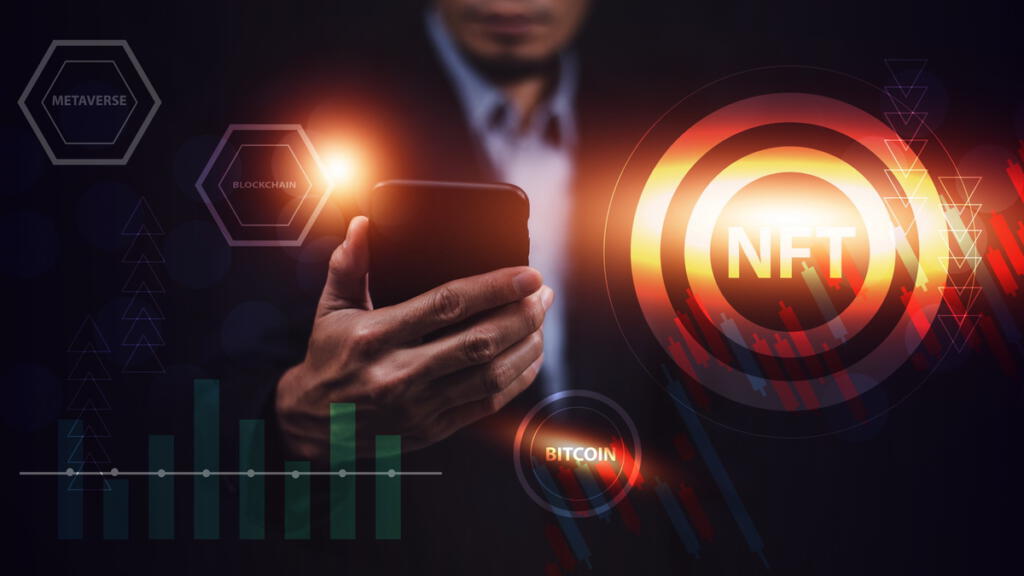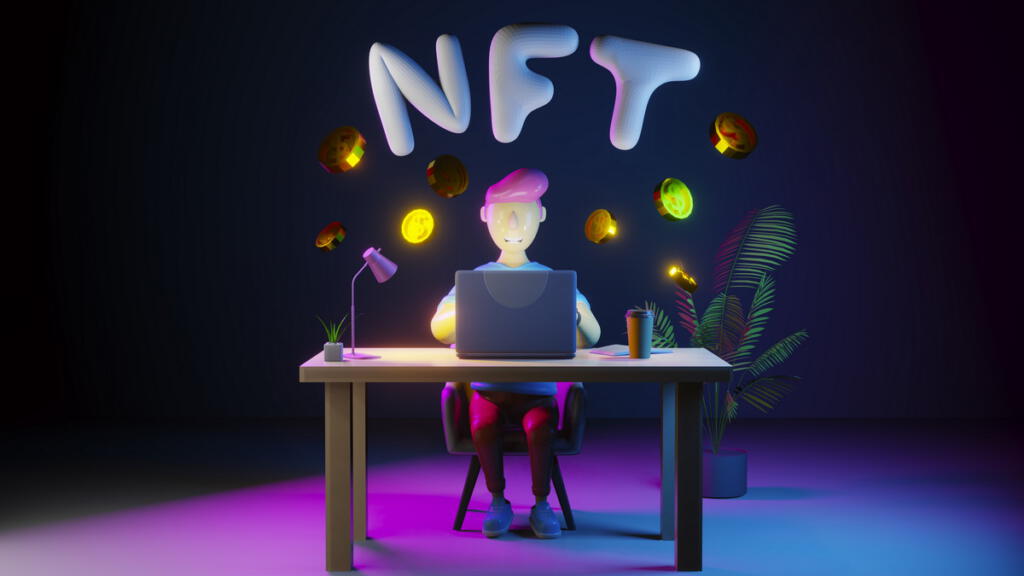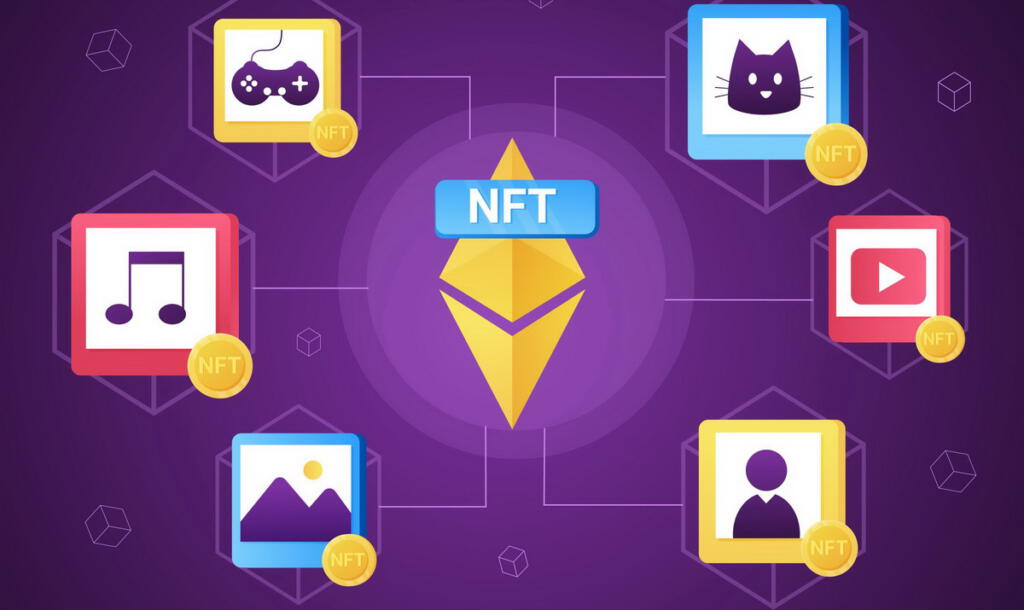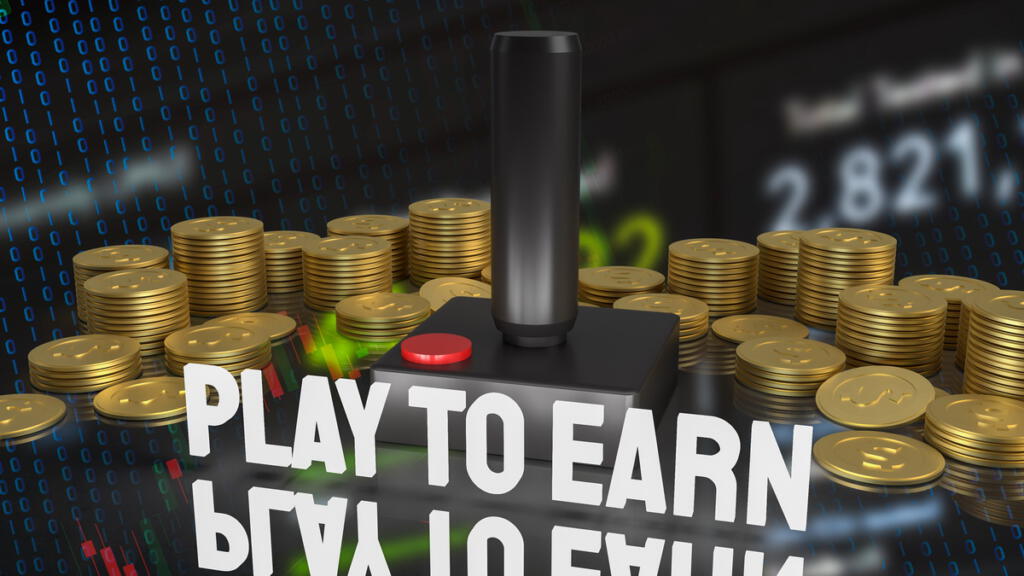Decentralized blockchains and non-fungible tokens (NFTs) have given rise to a potentially flourishing metaverse economy. A free market in the metaverse will be driven by creators and the exchange of digital assets. Now, it’s time for us to explore this phenomenon a little closer.
The metaverse represents our leap into a new world, which is the next era of our experience ‘surfing the web’. Technological innovation, powered by venture capital, will see the birth of multiple platforms and ecosystems. Eventually, this will contribute to a unified, seamless experience in the metaverse, where we will be able to take our digital assets between various, interoperable platforms. Thus, the foundations of a strong metaverse economy will be formed. The portability of our assets will be a key player in the metaverse economy and this will revolve around NFTs.
As with any thriving economy, the ability to buy, sell and trade goods must be ubiquitous and NFTs, with their instantaneous verification of purchase on the blockchain, open the doors to this brave new world. Moreover, in a true economy, society needs to be able to earn and NFTs have made this all possible.
Indeed, this is what makes NFTs transformative and the metaverse an exponential technology, which ushers in an era of unfathomable possibilities.
NFTs will drive the economy

An NFT, which comprises unique coding which can’t be modified, exists as a ‘smart contract’ on the blockchain. Thus, ownership is irrefutable and smart contracts operate with an underlying code, which means that NFTs are dynamic. Indeed, they can be customized to serve very meaningful purposes in society. For example, the smart contract may state (through its coding) that the creator of the NFT – perhaps a piece of virtual land – can earn 5% royalties from subsequent sales of that NFT.
Now, creators are getting very excited, as they can monetize their skills and cut out the middle man. For instance, you can use the Vox Edit software to build your own experiences in The Sandbox and charge people to play. Alternatively, if the demand is high, you could rent your land out to make some passive income. In the metaverse, there are a multitude of ways to earn and we haven’t even scratched the surface yet. NFTs make all this possible and what is more, they give you ownership.
Conversely, in the hugely popular game Roblox, you can earn by building your own experiences, much like The Sandbox. However, one fundamental difference is – you don’t have ownership. Indeed, Roblox doesn’t have NFTs and it’s not on the blockchain, therefore it’s run via centralized control. It’s true, you can earn a percentage of the revenue made (from sales of in-game digital assets), but the central powers of Roblox own the experience. They set the terms. With NFTs, the creator sets the terms and this will contribute to a thriving metaverse economy.
A creator economy in the metaverse

Perhaps the most exciting aspect of this shift towards Web3 and decentralized finance (DeFi in crypto) is the emergence of a true creator economy.
In the Web2 era, prior to now, we saw incredible creators emerge, building communities in their millions via social media and making a living doing so. Venture capital poured into the creator economy (around $1 billion USD in 2021) and creators started to be recognized for their value to society. Platforms like Tik Tok, Spotify, Instagram, and YouTube allowed creators to monetize their talents and we saw many success cases emerge from this boom.
However, for the value these creators are providing, many would argue that they are not being fairly compensated for their efforts. For example, the average YouTuber with one million subscribers earns $60k annually in advertising revenue. Is this a fair value exchange? Hence, Web2 was dominated by centralized forces, a handful of giants dominating the world with their profit-making machines. Scattered throughout the Web2 era, there are success cases in the more centralized creator economy, exemplified by YouTubers like Jake Paul.
Now, Web3 is ushering in a new era, which is all about giving creators what they deserve, the lion’s share of what they create. In the decentralized metaverse, we’re going to see creators build huge, thriving communities – their own virtual world. Within these worlds will be a true creator’s economy, where creators set the terms and forge their own smart contracts.
Indeed, the infrastructure provided by emerging Web3 platforms already allows unprecedented levels of access, engagement, and connection between creators and their fans. The metaverse, with the assistance of technologies like virtual reality (VR), will allow fans to truly immerse themselves in their preferred environments. There, they will be able to express themselves via their own, personalized avatars, in a (hopefully) safe, virtual space.
For the creators, countless opportunities for monetization will arise through NFTs, which could take the form of digital items sold on a marketplace (wearables, useful gaming assets), exclusive events in the physical and digital world, merchandise or whatever the fans demand. Creators will be so closely connected to their fans in this era.
Imagine if you could build your own community within the metaverse and create enough value that 1 million fans subscribe. As a creator on a decentralized blockchain, those 1 million fans would be incredibly valuable. Suddenly, everything you create, you own, and almost all the profits go to you. Moreover, you set the terms of the contract. Indeed, the power is truly moving back into the hands of the creator.
Tokenization in the metaverse economy

In this kind of value exchange, everyone wins. The creators make what they’re truly worth and the fans gain more access, connection, and have a say in the community like never before.
Previously, fans have spent their hard-earned money and gained very little in the way of access to their heroes, connection with their peers, or having a voice in the community. The metaverse, with its inclusiveness, will turn this tradition on its head, and one way is through a tokenized system on the blockchain.
Essentially, creators can forge a social token, like Decentraland created ‘Mana’ and The Sandbox created ‘SAND’. This community token affords holders a sense of identity and even better, they will have a say in the roadmap of that project. If the community is run like a DAO (Decentralized Autonomous Organization), votes will be held on social channels like Discord, empowering members to make decisions, which will impact the project directly moving forward. The most transformative thing of all is: that those community tokens will appreciate in value based on the laws of supply and demand, making the creators and their community a joint force in the shared goal of growth and prosperity.
All transactions are recorded on the blockchain and thus, if they choose to do so, creators can reward the biggest contributors to the community, via tokens, NFTs or votes, etc. Make no mistake, we’re on the precipice of a monumental shift. If the metaverse continues to attract enormous venture capital at this current rate, we could start seeing thriving creator economies proliferating in a multitude of virtual worlds – and soon!
NFTs in the real world

Let’s not forget, the utility of NFTs is not confined to the digital world. We’ve only just started to realize the potential of NFTs as a bridge between the physical and digital worlds.
The metaverse economy will be sustained and propped up by NFTs, yet those same NFTs could have real-world utility, depending on the creator.
For instance, creators have launched NFT collections, which allow fans to gain value in the virtual world and in real life. The NFT could be a membership to a VIP club or restaurant in real life, as well as give you access to an exclusive venue in the metaverse. With real-life utility, the value of NFTs increases exponentially and this should be good for economies in the virtual realm.
Besides, fans have now become investors, purchasing NFTs as assets, which can be sold on for a profit when they’ve enjoyed all the benefits they want. With the possibilities afforded by the blockchain and its decentralized infrastructure, the empowered crypto world, armed with NFTs, is gradually gaining more knowledge about the economy and what makes it flourish. This too will be crucial to a successful metaverse economy.
Gaming and the role of P2E

There will be over 3 billion gamers worldwide by 2023, which makes the development of gaming a key player in the metaverse economy. Quite simply, gaming will be central to the economy in virtual worlds due to the popularity and the purchasing power of gamers.
Gamers and the Gen-Z demographic have disposable income, which they pour money into their favorite games, buying in-game ‘skins’ to decorate their various avatars, or cool weapons to annihilate opposition with. This is a multi-billion dollar industry, so imagine how the play-to-earn (P2E) structure will impact the metaverse, once gamers learn the mechanics of it all.
P2E games are emerging and we’ve already seen the potential for gamers to earn from their efforts. In fact, the metaverse economy will learn directly from games we’re seeing emerge on the blockchain, which allows players to earn through their time, effort and skills. Games like Axie Infinity, God’s Unchained, Alien Worlds, and Splinterlands have shown us the possibilities, where earning a supplementary income is a very real possibility and the keyword is: ownership.
Once gamers realize that they can be the owners of these digital assets, earned through grueling gameplay or money spent, this will take crypto one step closer to mass adoption. In turn, the metaverse economy will thrive with this generation of skillful, dedicated gamers spending money and earning their just rewards. For this to happen, gaming companies need to learn how to build strong, robust economies in the P2E realm.
The key to a bright future
I’ve touched upon some really exciting points, which point to an idealistic future in our exploration of virtual worlds. The metaverse economy will be a thrilling journey as creators build decentralized worlds using NFTs, and fans engage with creators in unprecedented ways.
The key to a thriving economy in the metaverse era will be educating the mass market on how to get on board, learn the basics of cryptocurrencies and how to earn in the economy, so they can feel flourish as a citizen in their chosen virtual society.
Author

Max is a distinguised author with a keen interest in Web3 technology.




